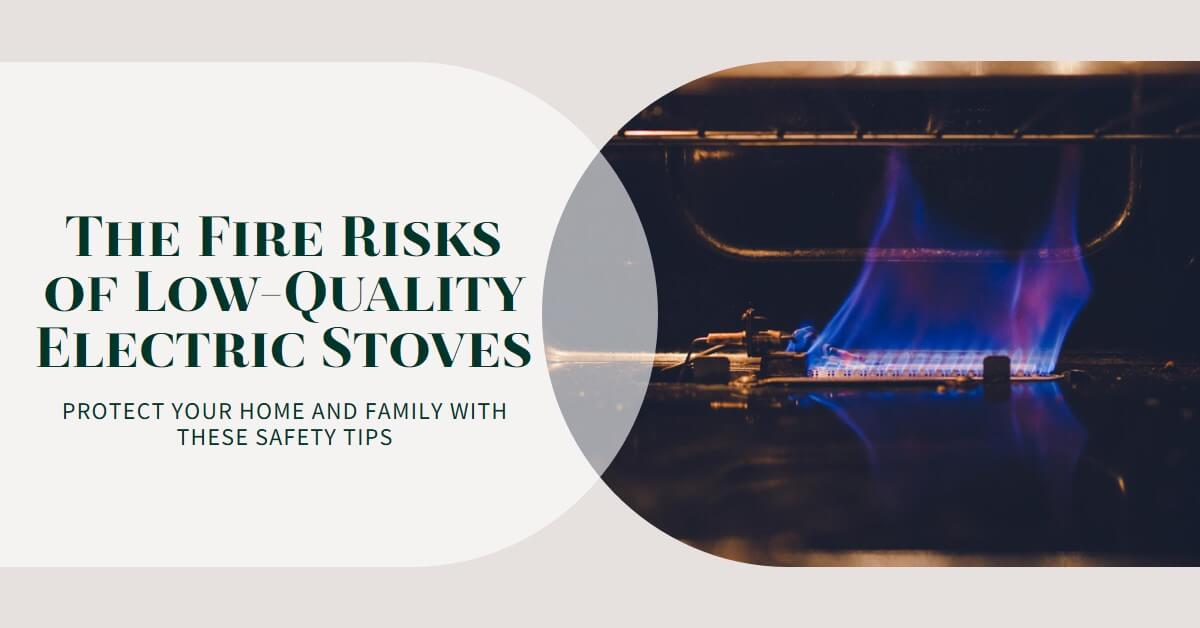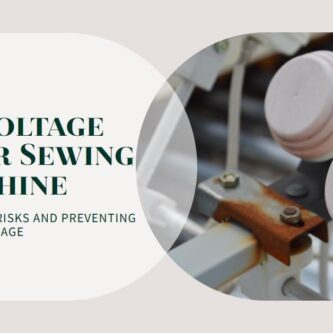Image: “Article Feature Image” by Bing is licensed under CC BY-NC-SA 4.0. Source: Bing Graphic Art. License: CC BY-NC-SA 4.0.
Electric stoves have become an essential appliance in most households. They provide a convenient way to cook food without the need for an open flame.
However, the safety of these stoves can be a concern, especially if they are of low quality.
Yes, a low-quality electric stove can catch fire due to poor construction, lack of safety features, and improper maintenance. It is important to follow proper safety guidelines and use high-quality appliances to reduce the risk of electric stove fires.
This article will explore whether low-quality electric stoves can catch fire, what causes electric stove fires, and how to prevent them.
Understanding Electric Stove Fires
Electric stove fires can occur due to a variety of reasons. Some common causes of electric stove fires include faulty wiring, damaged heating elements, and flammable materials placed too close to the stove.
Additionally, leaving the stove unattended while cooking can also increase the risk of an electric stove fire.
Factors that increase the risk of electric stove fires include:
- Poor maintenance: Lack of regular cleaning and maintenance of electric stoves can cause dirt and debris to accumulate around the heating elements, which can increase the risk of a fire.
- Overloading: Overloading the stove with too many pots or pans can cause it to overheat and ignite nearby objects.
- Loose connections: Loose connections in the wiring or heating elements can cause sparks, leading to a fire.
- Electrical surges: Power surges can cause electric stoves to malfunction and start a fire.
Can Low-Quality Electric Stoves Catch Fire?
The quality of an electric stove plays a crucial role in determining its safety. Low-quality electric stoves are more likely to catch fire than high-quality ones.
Low-quality electric stoves are often made with cheap materials and poor craftsmanship, which can cause them to malfunction, overheat, and catch fire.
Low-quality electric stoves may lack the safety features that are present in high-quality stoves. For instance, some low-quality stoves may not have automatic shut-off features that turn off the stove when it overheats or when food boils over. This can cause the stove to continue heating and potentially start a fire.
In addition, low-quality electric stoves may have poor insulation, which can cause them to overheat and ignite nearby objects.
Furthermore, low-quality stoves may have wiring or heating elements that are not properly connected or insulated, which can lead to sparks and fires.
Read also my comprehensive article: The Dangers of Leaving Your Electric Stove On.
Examples of Low-Quality Electric Stoves that have Caught Fire
There have been several instances of low-quality electric stoves catching fire. For instance, in 2019, a recall was issued for a brand of electric stoves due to a defect that caused them to overheat and catch fire.
In another instance, a low-quality electric stove caused a fire in a home in California, resulting in significant damage and injuries to the residents.
How to Prevent Electric Stove Fires
Preventing electric stove fires involves taking several measures to ensure the safety of the appliance and the surrounding environment. Here are some tips for preventing electric stove fires:
- Regular cleaning: Cleaning the stove regularly can help prevent the accumulation of dirt and debris around the heating elements.
- Avoid overloading: Only place the required number of pots and pans on the stove to avoid overloading.
- Use proper cookware: Use cookware designed for use with electric stoves and not made of flammable materials.
- Avoid leaving the stove unattended: Never leave the stove unattended while cooking.
- Install a smoke detector: Installing a smoke detector in the kitchen can help alert you to a fire in its early stages.
- Install AFCI: An AFCI (Arc-Fault Circuit Interrupter) can help detect and prevent fires caused by loose connections in an electric stove. It is an electrical safety device that monitors circuits for the presence of arcing and will trip the circuit if it detects a fault, helping to prevent fires from occurring.
However, it’s important to note that AFCIs should not be relied upon as the sole safety measure, and regular maintenance and inspection of the electric stove is still necessary to ensure safety.
What to Do If an Electric Stove Catches Fire
In the event of an electric stove fire, it’s crucial to act quickly to prevent the fire from spreading and causing further damage. Here are some steps to take if an electric stove catches fire:
- Turn off the stove: If the fire is small and manageable, turn it off immediately to prevent it from worsening.
- Use a fire extinguisher: If the fire is not under control, use a fire extinguisher to put it out. Remember to aim at the base of the flames and not the flames themselves.
- Evacuate the area: If the fire cannot be controlled, evacuate the area immediately and call 911 for help.
- Do not use water: Never use water to put out an electric stove fire as this can cause electrocution.
- Wait for help: Wait for the fire department to arrive and let them handle the situation.
Conclusion
Electric stoves are a common household appliance that can make cooking easy and convenient. However, they can also be a safety hazard if not used and maintained properly.
Low-quality electric stoves can pose an even greater risk of fires due to their lack of safety features and poor construction.
To prevent electric stove fires, it’s important to take measures such as regular cleaning, using proper cookware, and avoiding overloading the stove.
In the case of an electric stove fire, it’s crucial to act quickly and appropriately to prevent the fire from spreading and causing further damage.
By following these safety guidelines, we can ensure that our electric stoves are used safely and efficiently, reducing the risk of fires and keeping our homes and families safe.
you work With Electricity! Don’t leave empty-handed!
Looking to stay ahead of the game in the world of electrical engineering? Subscribe to my YouTube channel and gain access to exclusive content you won’t find anywhere else!
The staff I recommend (Amazon Affiliate Links to products I believe are high quality):
- Economy 120 Volt/60Hz AC Power Source – Step-Down Voltage & Frequency Converters 1800W
- UNI-T Digital Multimeter Tester UT139C
- 50-Amp Extension Cord for RV “100ft”
- Voltage Stabilizer 110/220v
- Hair Dryer “best selling“
- TOSHIBA EM131A5C-BS Countertop Microwave Ovens
Disclaimer: This contains affiliate links to Amazon products. I may earn a commission for purchases made through these links.




